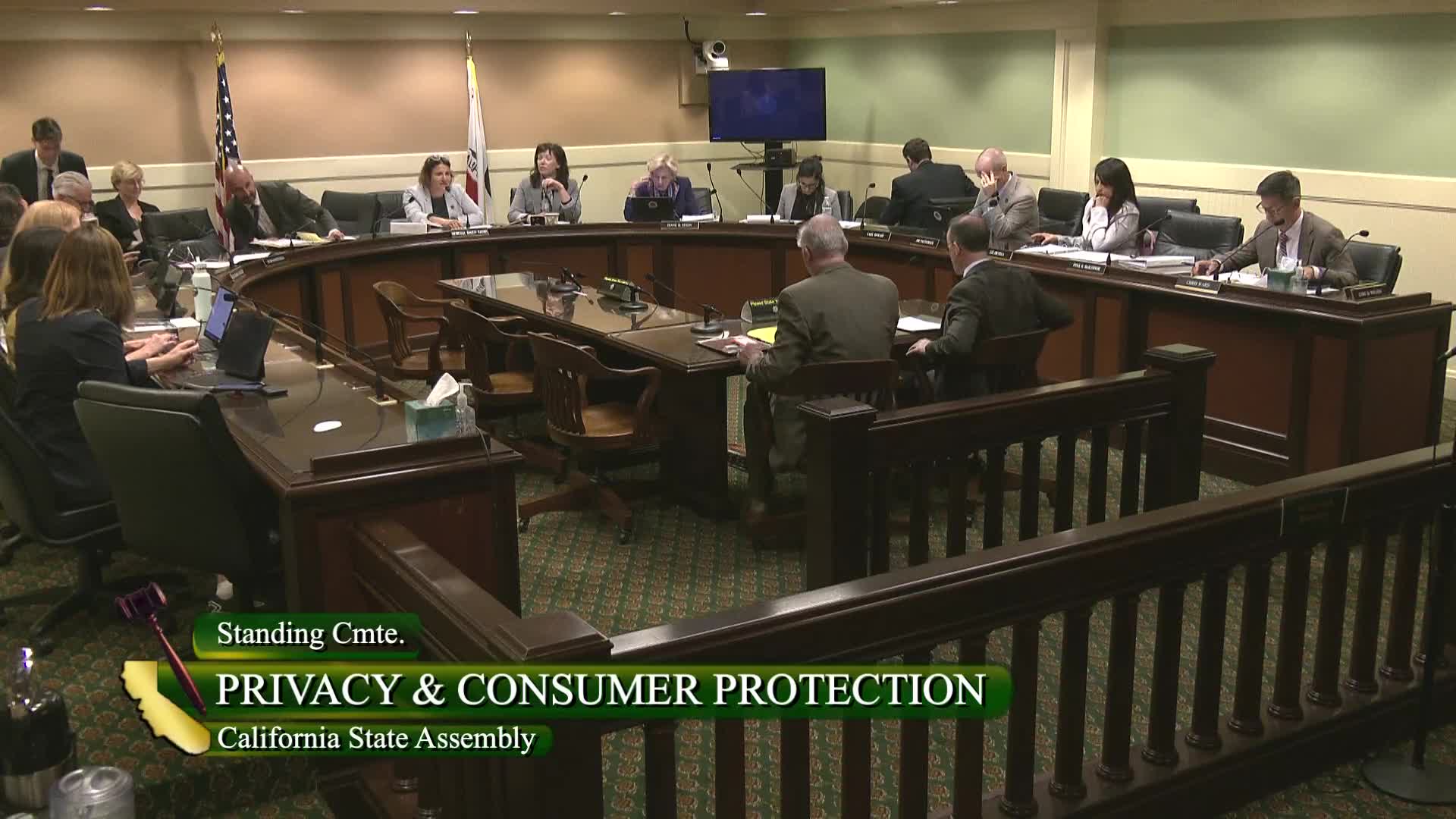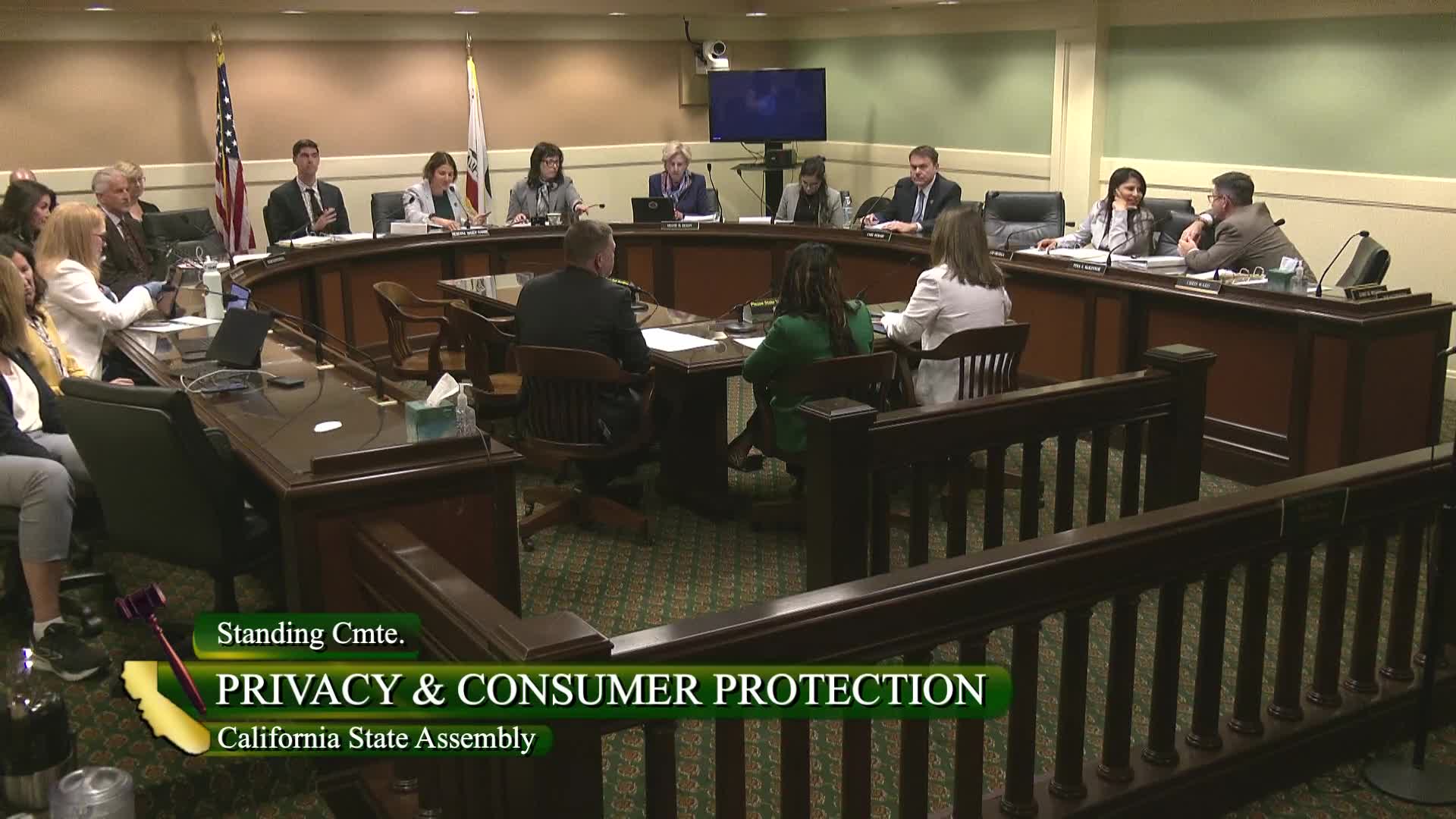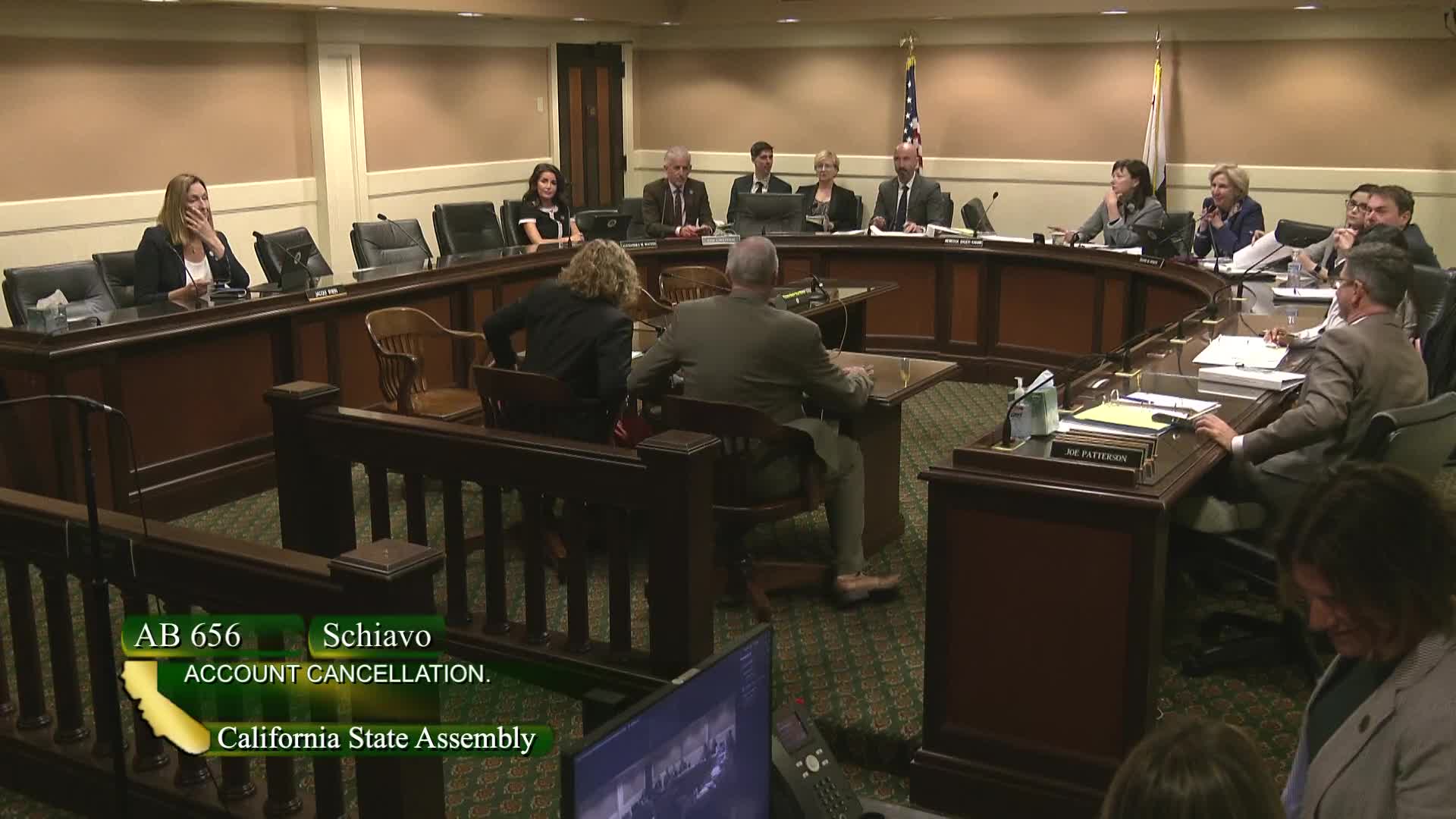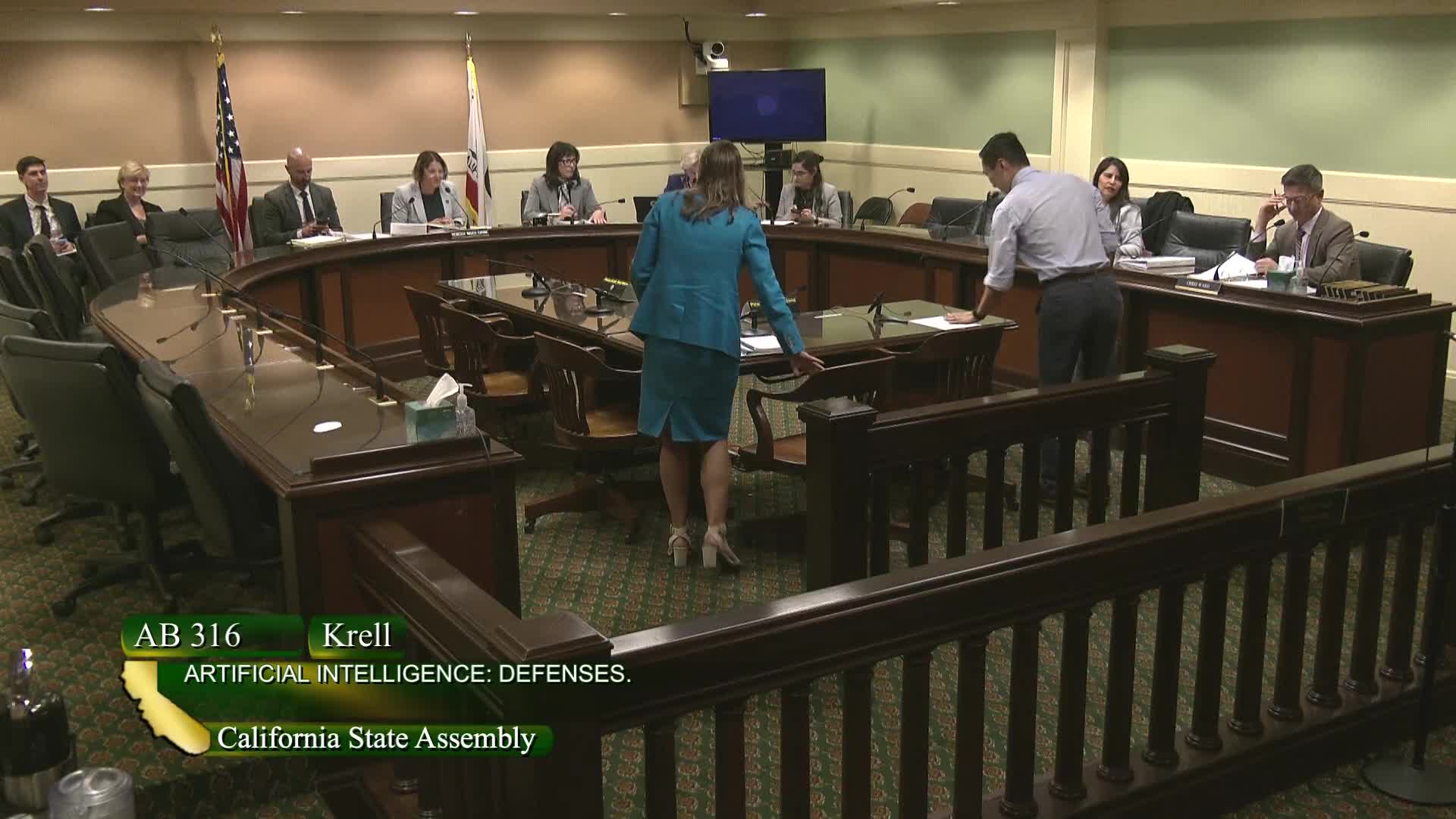Article not found
This article is no longer available. But don't worry—we've gathered other articles that discuss the same topic.

Committee advances bill requiring upfront disclosure of total rental‑car prices on merchant sites

Committee advances bill allowing limited geofencing and tightening rental‑car key rules to curb organized theft

Committee approves bill to make deleting social media accounts easier and to align deletion with CCPA rights

